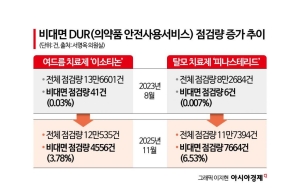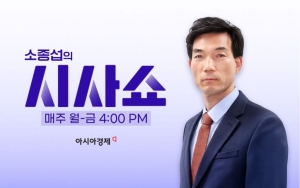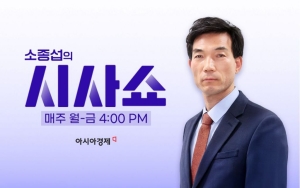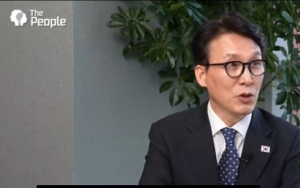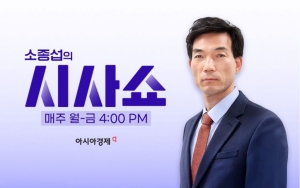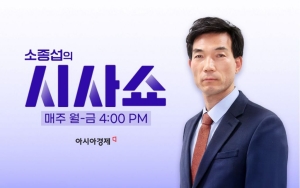홍콩, 1월13일 (로이터브레이킹뷰스) - 중국 국가주석의 13년 만의 첫 미국 국빈 방문을 앞두고 미국과 중국간 우호적 분위기가 조성되고 있다. 미국 정부는 위안화 문제에 대해 비교적 말을 아끼고 있고 중국도 미국의 양적완화정책에 대한 비난을 중단한 상태다. 지정학적 리스크가 커지고 있는 상황에서 양국의 협력 강화가 환영받을 수 있는 시점이기도 하다. 그러나 이같은 관계 개선 속에 미-중간 무역 균형 회복의 필요성이 희석돼서는 안된다.
미국의 중간선거, G20 서울 회의와 같은 긴장이 고조되는 이벤트들이 지나간 가운데 미국과 중국간 상호 비난 발언은 한층 완화된 상태다. 양국은 심지어 미국의 대만 무기판매로 중단됐던 고위급 군사교류를 재개하기로 합의했다. 지난주에는 중국 정부가 JP모간과 모간스탠리의 중국 증권사와의 합작사 설립에 대해 허가를 내줬다. 증권 합작사 설립 승인은 6년 만의 일이다.
세계는 분명 두 강대국의 관계 개선을 환영할 것이다. 미국과 중국은 남북 관계에 있어서도 큰 역할을 하고 있다. 최근 미국 정부는 북한이 미국 안보에 직접적 위협이 된다고 지목했다. 중국은 북한의 주된 외교적, 경제적 후원자다. 이번 양국 정상회담에서도 북한 문제가 논의될 가능성이 높다. 내년 대선을 치를 대만은 또 하나의 주된 화약고다.
위험한 것은 이같은 호의적 분위기가 양국간 무역 불균형 개선의 필요성을 희석시킬 수 있다는 점이다. 실제로 양국 각자의 무역 데이터를 볼 때 GDP 대비 퍼센티지로 무역 불균형은 감소하는 추세다. 그러나 양국간 무역 데이터에서는 불균형이 늘고 있다. 중국의 대미 무역 흑자는 작년 26% 증가한 1810억달러를 기록했다. 미국 GDP의 1.4% 수준이다.
이는 중국이 경제 성장의 속도만큼 위안화 절상을 허용하고 있지 않는데서 기인하는 것일 수 있다. 지난해 위안화 가치는 3.6% 오르는 데 그쳤고 무역가중치 기준으로는 거의 보합세를 나타냈다.
경제적, 정치적 압력이 완화되면서 중국과 미국간 긴장이 고조될 가능성은 줄었다. 하지만 이는 오히려 불행한 일이 될 수 있다. 외부 압력은 중국에 작은 개혁이나마 초래해 왔고 미국은 중국의 환율 정책에 대한 가장 강력한 비판자다. 양국간 관계 개선 분위기가 지속된다면 위안화 개혁이나 양국간 리밸런싱은 아마 더 기다려야 할지 모른다. (웨이 구 칼럼니스트)
* 본 칼럼은 개인의 견해로 로이터의 편집 방향과 일치하지 않을 수 있습니다.
* 원문
BREAKINGVIEWS-U.S.-China love-in shouldn't deter rebalancing
-- The author is a Reuters Breakingviews columnist. The opinions expressed are her own --
By Wei Gu
HONG KONG, Jan 12 (Reuters Breakingviews) - Goodwill surrounds the first state visit by a Chinese president to the United States in 13 years. Washington has gone quiet on the topic of China's undervalued currency, and China has stopped criticising reckless U.S. money-printing. More cooperation is to be welcomed as geopolitical risks rise. But warming relations shouldn't distract from the need to rebalance U.S.-China trade.
With high-stress moments like the U.S. mid-term elections and the Seoul G20 meeting out of the way, rhetoric has eased. China even restarted high-level military exchanges, suspended over U.S. arms sales to Taiwan in January. Last week, Beijing finally allowed Chinese securities joint ventures for JPMorgan <JPM.N> and Morgan Stanley <MS.N>, the first such approvals in six years, suggesting a newfound friendliness towards U.S. banks.
The world should welcome better relations between the two superpowers. The United States and China are the main peacekeepers between North and South Korea. The North was named lately by Washington as a direct threat to U.S. security, yet counts Beijing as its top diplomatic and economic backer. Taiwan, which next year holds presidential elections, is another major flash point.
The danger is that goodwill obscures the need for dramatic trade rebalancing. True, both countries have seen their trade imbalances shrinking as a percentage of GDP. Yet their bilateral trade gap has actually grown. China's trade surplus to the United States rose by 26 percent in 2010 to $181 billion, equivalent to 1.4 percent of U.S. GDP.
One reason for this may be that China has done little to let its currency appreciate in line with the rising strength of its economy. The currency rose just 3.6 percent in 2010, and was almost flat on a trade weighted basis.
As financial and political pressures ebb, China may see fewer moments of high tension with its biggest trading nation. That is unfortunate. External pressure has tended to lead to small reforms in China, and the United States remains the most vocal critic of China's exchange rate policy. If the love-in between Obama and Hu lasts, yuan reform and U.S.-China rebalancing may have to wait.







![전문가 4인이 말하는 '의료 생태계의 대전환'[비대면진료의 미래⑥]](https://cwcontent.asiae.co.kr/asiaresize/319/2026013014211022823_1769750471.png)

